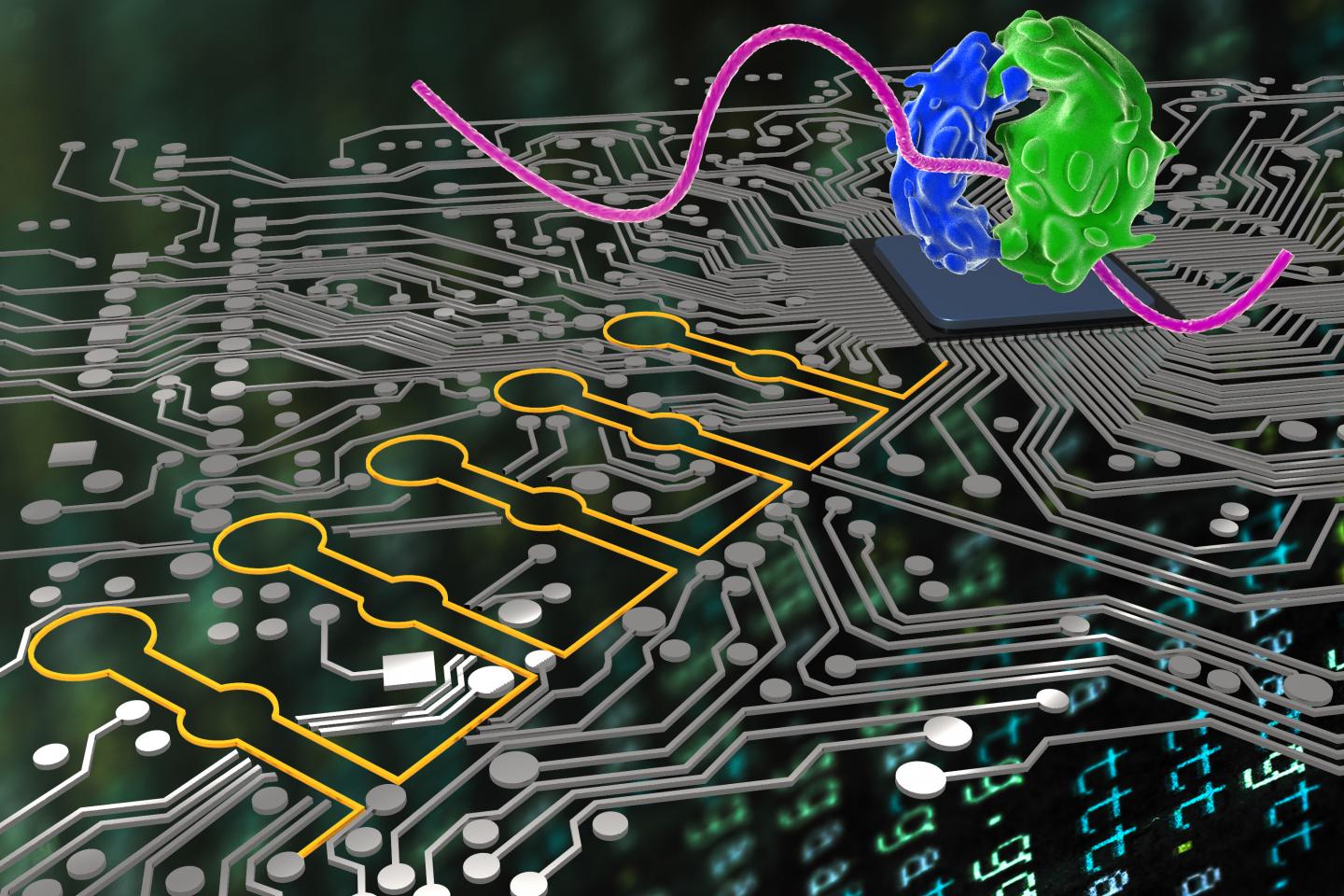Synthetic biologists at Harvard’s Wyss Institute for Biologically Inspired Engineering and associates have developed a living programmable “ribocomputing” device based on networks of precisely designed, self-assembling synthetic RNAs (ribonucleic acid). The RNAs can sense multiple biosignals and make logical decisions to control protein production with high precision.
As reported in Nature, the synthetic biological circuits could be used to produce drugs, fine chemicals, and biofuels or detect disease-causing agents and release therapeutic molecules inside the body. The low-cost diagnostic technologies may even lead to nanomachines capable of hunting down cancer cells or switching off aberrant genes.










Comments are closed.